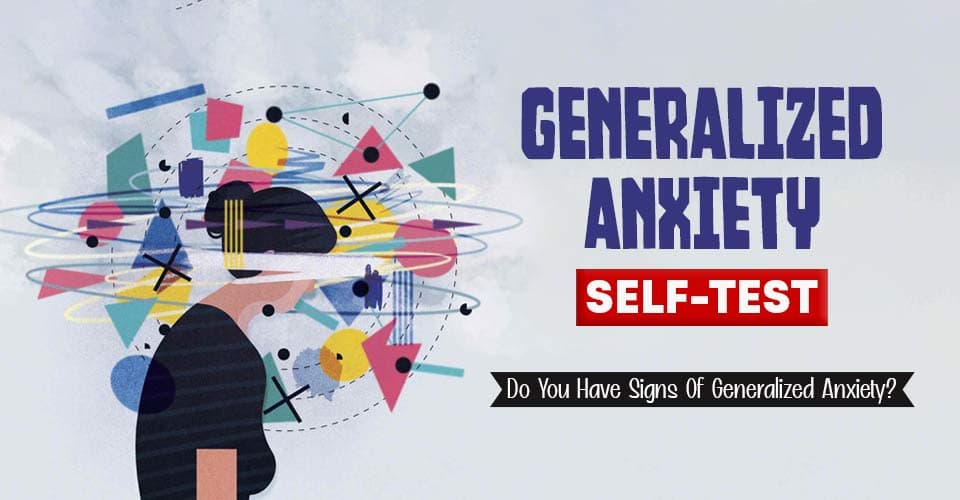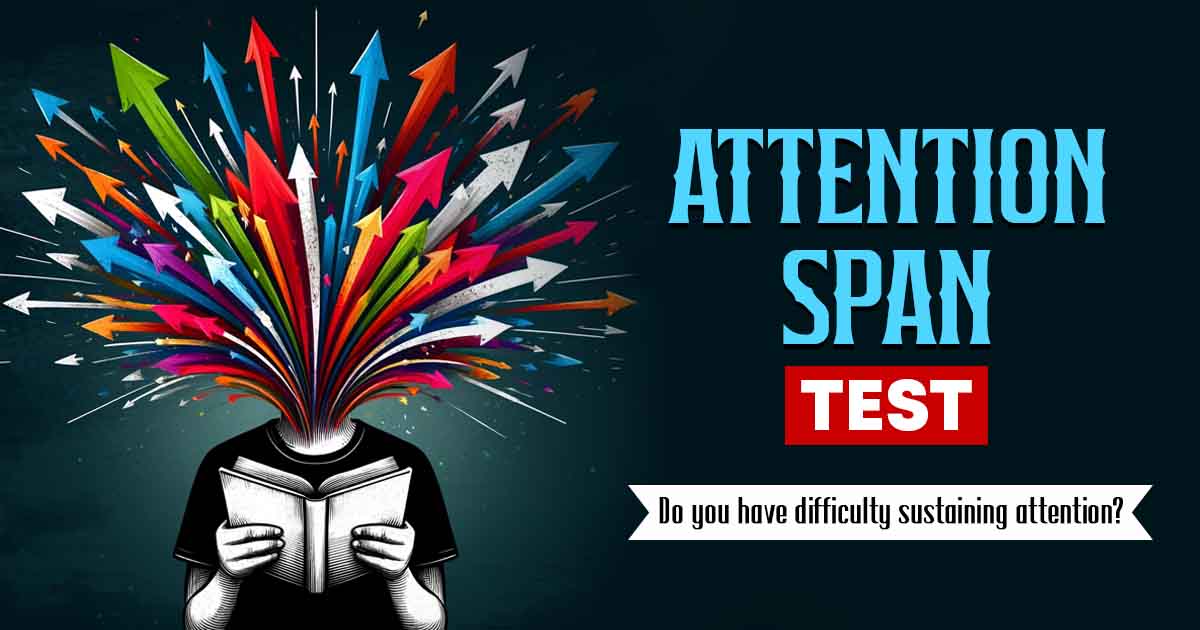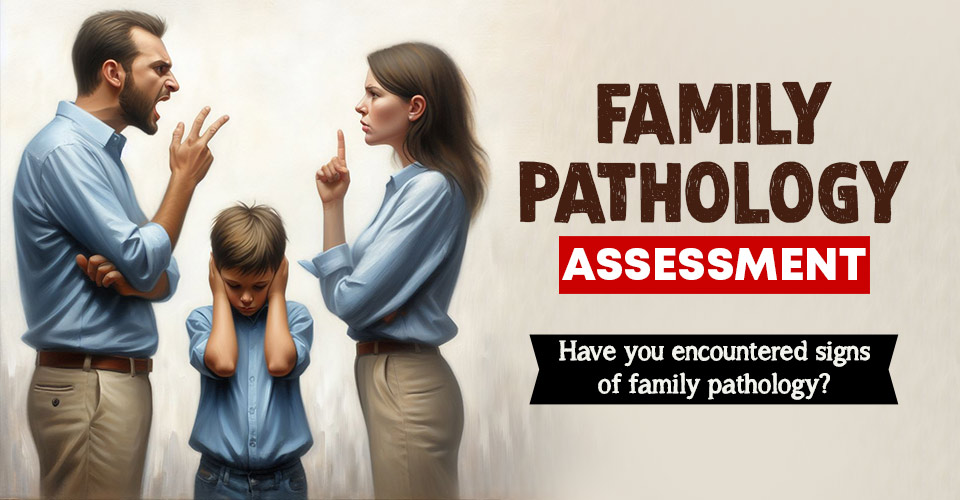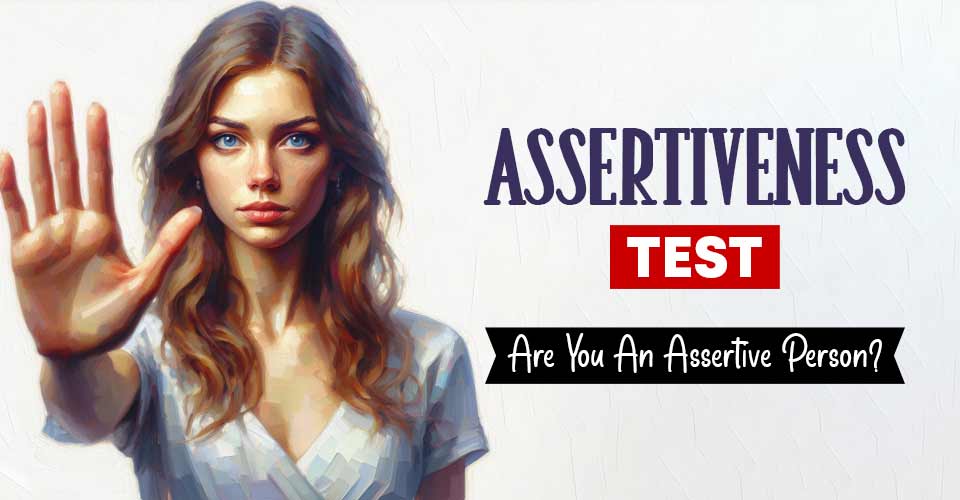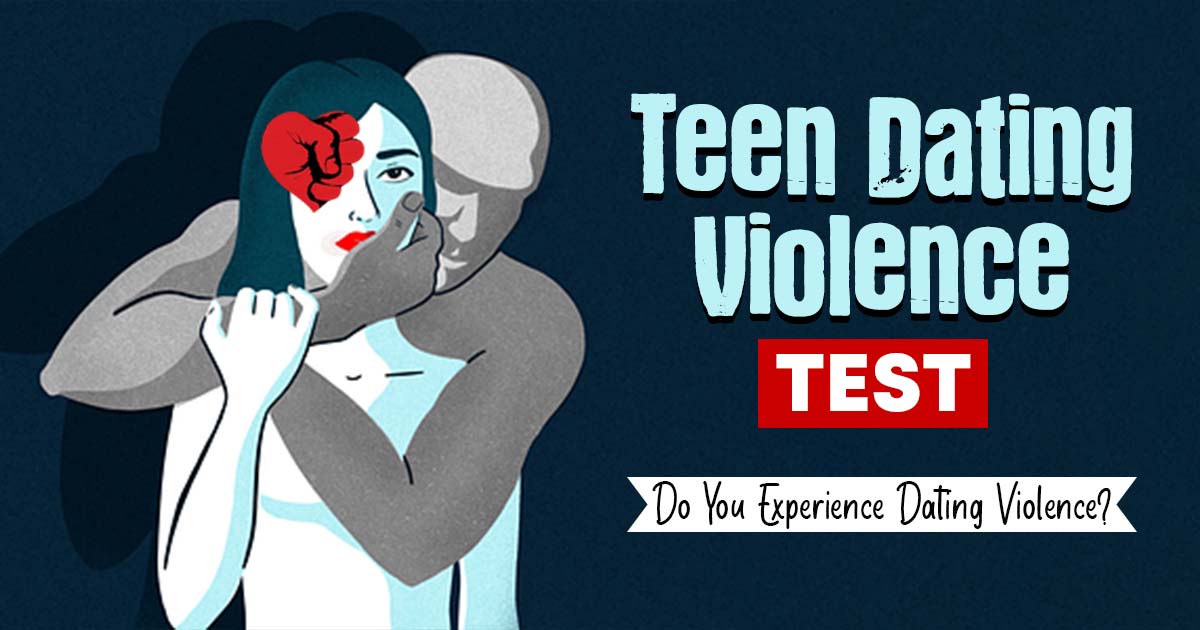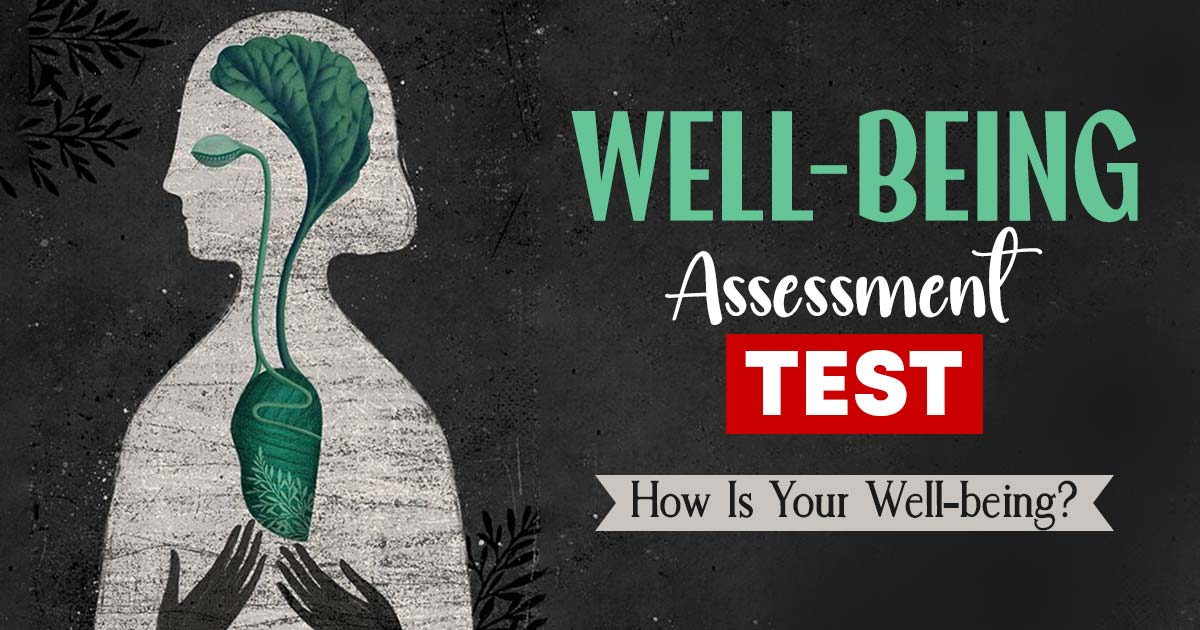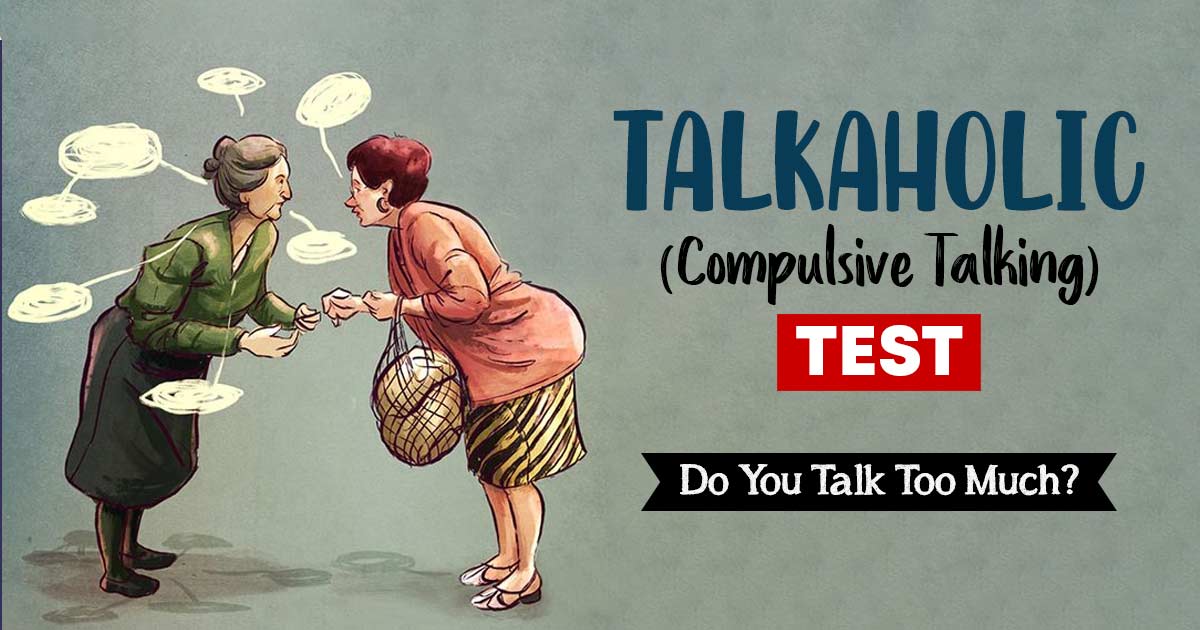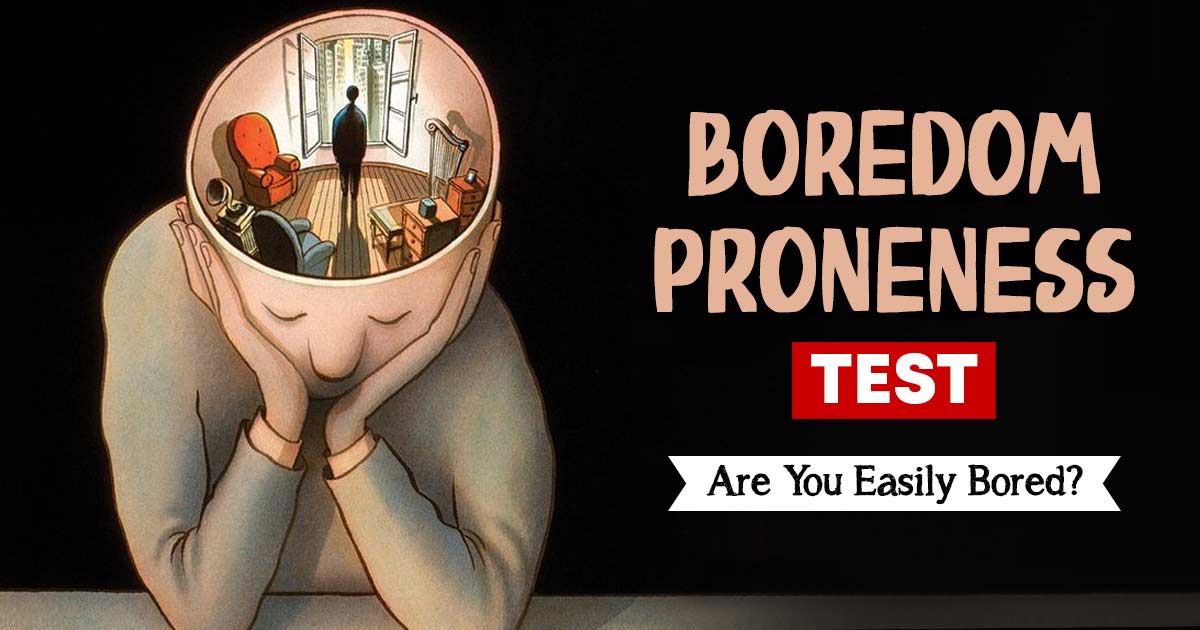Do you experience excessive worry about various aspects of life, coupled with irritability, restlessness, fatigue, and nervousness? Are you finding it challenging to control your anxiety and tension, despite being aware that it’s irrational? Does your anxiety interfere with your daily activities? This Generalized Anxiety Disorder test can help you determine whether you exhibit symptoms of GAD.
What Is Generalized Anxiety Disorder?
Generalized anxiety disorder (GAD) is a subcategory within Anxiety Disorder that is marked by excessive anxiety and worry about everyday life events for no specific reason.
People with the symptoms of this disorder tend to expect a negative consequence out of any neutral situation and become unable to control their worries about health, money, family, work, or school.
Symptoms of GAD include-
- Restlessness,
- Mental fatigue,
- Irritability,
- Sleep disturbance,
- Muscle tension,
- Shortness of breath
NOTE: The anxiety and physical symptoms would be diagnosed as a disorder only when it would impair social, occupational, or other important areas of functioning for at least over the past 6 months.
Read More About Generalized Anxiety Disorder Here
Instructions For Taking Generalized Anxiety Disorder Test Online
Below is a list of questions that relate to life experiences common among people with symptoms of Generalized Anxiety. Please read each question carefully, and select the answers that suggest how often you have experienced the same or similar challenges in the past few months.
Please note: This test is a self-assessment and not a diagnostic test.
Assessment Summary
0 of 15 Questions completed
Questions:
Information
You have already completed the assessment before. Hence you can not start it again.
Assessment is loading…
You must sign in or sign up to start the assessment.
You must first complete the following:
Results
Results
Your time:
Time has elapsed
You have reached 0 of 0 point(s), (0)
Earned Point(s): 0 of 0, (0)
0 Essay(s) Pending (Possible Point(s): 0)
Categories
- Mental Health Assessment 0%
-
No Signs Of Generalized Anxiety Disorder
Your score indicates that you have no significant signs of Generalized Anxiety Disorder (GAD). It shows that your tension and anxiety might be part of a regular response, which does not make you negatively worried and does not create any physical symptoms of restlessness, tiredness, sleeping, or eating disturbance that could create discomfort in your daily activities.
However, it should be noted that this is just a basic screening tool and not meant for proper medical diagnosis. If you think the results do not accurately represent your thoughts and feelings, then we would encourage you to consult a mental health professional for accurate diagnosis and treatment.
Want to learn more?
Treatment of Generalized Anxiety Disorder (GAD) aims at stabilizing an individual’s symptoms of anxiety and worry so that the person may become able to cope with the difficulties. Treatment most often includes a combination of medication and cognitive behavioral therapy with a few lifestyle-changing strategies. However, acknowledging your mental health signs and seeking help and support can lead you to change your situation. If you want to know how to seek help for yourself or help someone who you suspect to have symptoms of Generalized Anxiety, talk to our psychologists to better understand what you can do to recover from it. Disclaimer: If the anxiety, negative worry, or physical symptoms causes clinically significant distress or impairment in social, occupational, or other important areas of functioning, then it might be considered a disorder.
You can use our Mood Tracker to stay mindful of your mood every day, and identify your innermost thoughts & emotions on a daily basis. It will aid you in doing all those things you love, while limiting activities that might dampen your mood.
-
Low Signs Of Generalized Anxiety Disorder
Your score indicates that you have low signs of Generalized Anxiety Disorder (GAD). It shows that you have a few significant signs of tension and anxiety proneness. Your scores also indicate that you have a slight proneness to becoming worried in some situation and finds little difficulty to control that worries. Although this sign seems to be a part of your regular response, which does not create many physical symptoms of restlessness, tiredness, sleeping, or eating disturbance that could create disturbance in your daily activities.
However, it should be noted that this is just a basic screening tool and not meant for proper medical diagnosis. If you think the results do not accurately represent your thoughts and feelings, then we would encourage you to consult a mental health professional for accurate diagnosis and treatment.
Want to learn more?
Treatment of Generalized Anxiety Disorder (GAD) aims at stabilizing an individual’s symptoms of anxiety and worry so that the person may become able to cope with the difficulties. Treatment most often includes a combination of medication and cognitive behavioral therapy with a few lifestyle-changing strategies. However, acknowledging your mental health signs and seeking help and support can lead you to change your situation. If you want to know how to seek help for yourself or help someone who you suspect to have symptoms of Generalized Anxiety, talk to our psychologists to better understand what you can do to recover from it. Disclaimer: If the anxiety, negative worry, or physical symptoms causes clinically significant distress or impairment in social, occupational, or other important areas of functioning, then it might be considered a disorder.
You can use our Mood Tracker to stay mindful of your mood every day, and identify your innermost thoughts & emotions on a daily basis. It will aid you in doing all those things you love, while limiting activities that might dampen your mood.
-
Moderate Signs Of Generalized Anxiety Disorder
Your score indicates that you have moderate signs of Generalized Anxiety Disorder (GAD). It shows that you have some significant signs of worry, tension, and anxiety at a moderate level. Your scores also indicate that you might have some proneness to becoming worried in some situation and finds some difficulties to control that worries. Your responses also indicate that you seem to have some physical signs of restlessness, tiredness, sleeping, or eating disturbance, shortness of breath, palpitation, and mental tiredness that might create a few disturbances in your daily activities.
However, it should be noted that this is just a basic screening tool and not meant for proper medical diagnosis. If you think the results do not accurately represent your thoughts and feelings, then we would encourage you to consult a mental health professional for accurate diagnosis and treatment.
Want to learn more?
Treatment of Generalized Anxiety Disorder (GAD) aims at stabilizing an individual’s symptoms of anxiety and worry so that the person may become able to cope with the difficulties. Treatment most often includes a combination of medication and cognitive behavioral therapy with a few lifestyle-changing strategies. However, acknowledging your mental health signs and seeking help and support can lead you to change your situation. If you want to know how to seek help for yourself or help someone who you suspect to have symptoms of Generalized Anxiety, talk to our psychologists to better understand what you can do to recover from it. Disclaimer: If the anxiety, negative worry, or physical symptoms causes clinically significant distress or impairment in social, occupational, or other important areas of functioning, then it might be considered a disorder.
You can use our Mood Tracker to stay mindful of your mood every day, and identify your innermost thoughts & emotions on a daily basis. It will aid you in doing all those things you love, while limiting activities that might dampen your mood.
-
Severe Signs Of Generalized Anxiety Disorder
Your score indicates that you have severe signs of Generalized Anxiety Disorder (GAD). It shows that you have strong significant signs of worry, tension, and anxiety. Your scores also indicate that you seem to have a strong proneness to becoming worried in many situations and find many difficulties to control that worries. Your responses also indicate that you seem to have many physical signs of restlessness, tiredness, sleeping, or eating disturbance, shortness of breath, palpitation, and mental tiredness that might create many disturbances in your daily activities.
However, it should be noted that this is just a basic screening tool and not meant for proper medical diagnosis. If you think the results do not accurately represent your thoughts and feelings, then we would encourage you to consult a mental health professional for accurate diagnosis and treatment.
Want to learn more?
Treatment of Generalized Anxiety Disorder (GAD) aims at stabilizing an individual’s symptoms of anxiety and worry so that the person may become able to cope with the difficulties. Treatment most often includes a combination of medication and cognitive behavioral therapy with a few lifestyle-changing strategies. However, acknowledging your mental health signs and seeking help and support can lead you to change your situation. If you want to know how to seek help for yourself or help someone who you suspect to have symptoms of Generalized Anxiety, talk to our psychologists to better understand what you can do to recover from it. Disclaimer: If the anxiety, negative worry, or physical symptoms causes clinically significant distress or impairment in social, occupational, or other important areas of functioning, then it might be considered a disorder.
You can use our Mood Tracker to stay mindful of your mood every day, and identify your innermost thoughts & emotions on a daily basis. It will aid you in doing all those things you love, while limiting activities that might dampen your mood.
- 1
- 2
- 3
- 4
- 5
- 6
- 7
- 8
- 9
- 10
- 11
- 12
- 13
- 14
- 15
- Current
- Review
- Answered
- Correct
- Incorrect
-
Question 1 of 15
1. Question
Do you feel worried?
-
Question 2 of 15
2. Question
Do you find inability to control your restlessness?
-
Question 3 of 15
3. Question
Do you get tired even after doing some small day-to-day activities?
-
Question 4 of 15
4. Question
Do you feel difficulty concentrating or feels that your mind going blank?
-
Question 5 of 15
5. Question
Do you go through sleeping disturbances? (such as difficulty falling asleep, broken sleep, and dissatisfying sleep)
-
Question 6 of 15
6. Question
Do you feel like stomachache/fast heartbeat/trembling or shaking of hands during tension or worry?
-
Question 7 of 15
7. Question
Can you peacefully relax without feelings of worry?
-
Question 8 of 15
8. Question
Do you feel afraid that something terrible might happen?
-
Question 9 of 15
9. Question
Do you find difficulties in going along with your friends for hangout due to your tension/worry?
-
Question 10 of 15
10. Question
Can you slow down yourself during any distressing/stressful situation?
-
Question 11 of 15
11. Question
Do you feel constant tension and weakness in your muscles?
-
Question 12 of 15
12. Question
Do you feel short of breath?
-
Question 13 of 15
13. Question
Do you feel unsteady such as your head is spinning or feel like fainting?
-
Question 14 of 15
14. Question
Do you feel inabilities to control your worry/tension despite knowing that it might be irrational?
-
Question 15 of 15
15. Question
Do you find difficulties in taking care of things/people at home due to your tension/worry?

